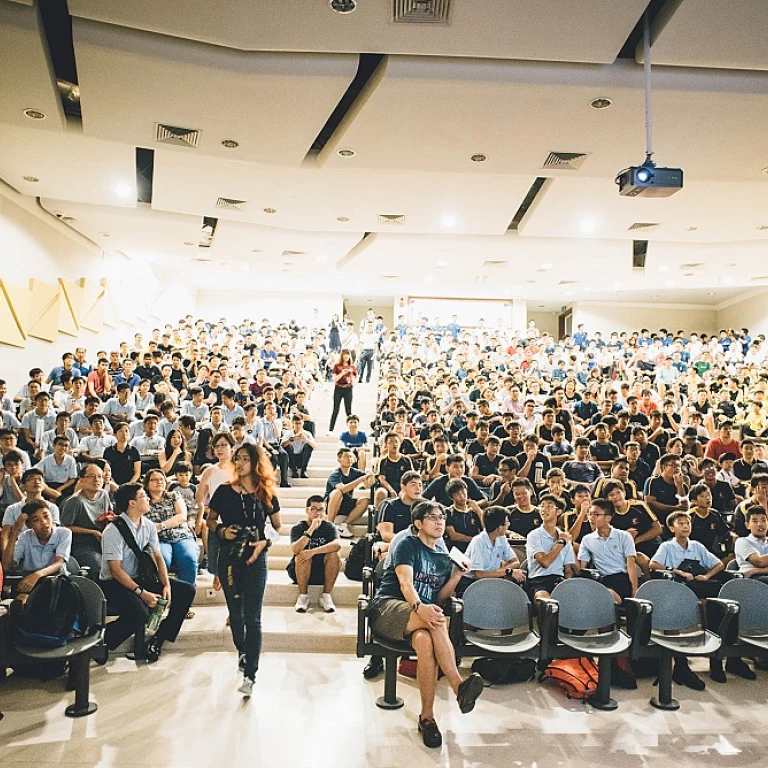Understanding the Impact of AI on Pension Strategies
Exploring AI's Influence on Pension Strategies
AI and machine learning are reshaping the pension landscape by influencing strategies employed in pension plans and providing alternative solutions for retirement income. As the integration of artificial intelligence in financial systems gains momentum, pension fund managers are reevaluating traditional approaches to investment and management.
- Enhanced Data Analysis: AI-driven analysis of large datasets enables a more comprehensive understanding of investment opportunities and risks, allowing pension funds to tailor strategies for optimal outcomes.
- Dynamic Decision-making: By embracing AI, pension managers can utilize predictive analytics for more accurate decision-making, adapting to economic and market shifts with agility.
- Personalized Pension Plans: The technology permits a more personalized approach to pension fund management, which can better match individual retirement goals with corresponding investment strategies.
The role of AI in pension strategies extends beyond simple data crunching; it contributes significantly to the personalization of pension plans. By leveraging sophisticated algorithms, pension managers can forecast future trends and craft defined contribution plans that align with members’ financial literacy levels and retirement ambitions.
Traditional investment models are being augmented, making way for AI to identify patterns that humans may overlook. This automated precision paves the way for enhancing member benefits and optimizing global pension investment strategies. For those interested in understanding how 401k plans like Select Rehabs have evolved in this AI era, further insight is available
here.
In embracing these developments, the pensions industry navigates not only new technology but also the ethical and practical challenges posed by AI-led financial planning. As the CFA Institute and similar bodies guide the industry towards more robust pension policies, the potential for AI-enhanced benefits becomes more pronounced.
Ultimately, the expansion of AI within pension strategies marks a pivotal point in the evolution of global pension systems, influencing the future of retirement income and the age of financial security.
The Role of the CFA Institute in Shaping Pension Policies
Influencing Pension Policies through Strategic Leadership
The financial landscape is continually evolving, with artificial intelligence (AI) playing an increasingly critical role in shaping pension strategies and management. As the pension industry navigates these changes, the expertise and authority of the CFA Institute become indispensable. Their involvement in policy shaping ensures that technology advancements, like AI and machine learning, contribute positively to retirement income systems.
The role of the CFA Institute extends beyond mere oversight. By providing the global pension community with insights from robust data and comprehensive reports, the institute helps shape policies that align with modern technological demands and financial sustainability. These policies not only guide defined contribution plans but also assist in global pension fund management, ensuring the optimization of financial resources for members.
Moreover, the CFA Institute plays a pivotal part in cultivating financial literacy among pension managers. This education is crucial as it empowers decision-makers to implement AI-driven strategies effectively, boosting investment performance and optimizing retirement income.
Collaborating with industry leaders and think tanks, including those like the economic forum, the CFA Institute works on initiatives that tackle pressing issues within the pension landscape. This collaboration aims to align AI’s potential with ethical considerations in pension management, ensuring secure systems for stakeholders.
Incorporating AI within the pensions industry doesn’t come without its challenges, but the CFA Institute’s stewardship provides a guiding light. By harmonizing the technical advancements with human-centric values, they foster a progressive environment ready for the future of global pension management.
As AI continues to redefine how pension plans are approached, it’s imperative to understand
the costs and impacts of these technological integrations. This understanding will be essential for policymakers and financial executives steering the industry through this era of AI.
Challenges and Opportunities in AI-Driven Pension Management
Addressing the Challenges and Harnessing Opportunities
In the rapidly evolving world of AI-driven pension management, both challenges and opportunities abound. Understanding these intricacies is crucial for organizations and individuals alike. The integration of AI technologies in financial systems can significantly transform traditional pension plans and redefine retirement income strategies.
Firstly, one of the primary challenges is the management of vast amounts of data. AI technologies, powered by machine learning, offer a compelling solution by streamlining data processing, enabling more efficient decision making in pension plans. However, financial institutions must ensure that their systems are equipped to handle this influx of data while maintaining accuracy and safeguarding member information.
Another potential challenge is maintaining financial literacy among members. With AI and complex technology at the helm, understanding and interpreting pension-related benefits can become overwhelming for the average member. Hence, it is vital for the CFA Institute and similar organizations to provide education and support to help members navigate these complex systems.
The opportunities, however, are significant. AI can enhance performance management by predicting market trends and optimizing investments. For example, utilizing AI to analyze global pension data assists in devising strategies that can lead to better returns for pension fund investments, ultimately benefiting individual pension plan members.
Moreover, AI technology can augment the way defined contribution plans are managed, offering tailored solutions that align with individual economic goals. By customizing retirement income plans, personal financial needs are better met. For organizations, this shift not only aids in retaining pension fund members but also attracts new ones looking for innovative financial solutions.
In summary, the deployment of AI in pension management is a double-edged sword, presenting complexities yet unlocking invaluable potential. Balancing these dynamics will shape the future of the pensions industry, ensuring sustainable and efficient retirement solutions. For more insights into pension plan management, exploring the
"simple cafeteria plan" approach may offer valuable perspectives."
Ethical Considerations in AI and Pension Management
The Ethical Dimension of AI in Pension Management
In an era where artificial intelligence is increasingly integrated into the pensions industry, ethical considerations become vital. As AI and machine learning technologies are employed to enhance decision-making and optimize pension strategies, it is crucial to ensure that these advances benefit all stakeholders responsibly.
One core issue is the transparency of AI-driven systems. Pension fund members deserve to understand how their retirement income is calculated and managed. Complex algorithms should not obscure the decision-making process. Financial literacy efforts by institutions like the CFA Institute can support members in navigating these sophisticated systems, making them informed participants in their own pension plans.
Data privacy also emerges as a pressing concern. AI systems thrive on data – vast amounts of it, used to finetune financial predictions and plans. All stakeholders must prioritize safeguarding sensitive information. Ensuring that data is used ethically, and with member consent, is paramount to maintain trust in AI-driven pension management.
Furthermore, there is the risk of bias inherent in AI technology. It's imperative to acknowledge that these systems can unintentionally perpetuate existing inequalities if not carefully audited and managed. Institutions must actively work to identify and mitigate potential biases, ensuring that the benefits of AI do not disproportionately favor specific groups at the expense of others.
As we advance into this AI-powered age, embracing ethical practices in pension management is not just an ideal but a necessity. AI's powerful capabilities can revolutionize the pensions landscape, but only with a firm commitment to ethical standards will these innovations truly serve the global community in a fair and inclusive manner.
Case Studies: Successful AI Integration in Pension Funds
Real-Life Examples of AI in Pension Management
In the evolving landscape of pension management, artificial intelligence, and machine learning have become pivotal. Several pension funds have adopted AI-driven systems to enhance their investment strategies and retirement income planning.
AI's capabilities in data analysis and decision making have enabled pension funds to optimize their portfolios. By processing vast amounts of financial data, AI can identify trends and inform better investment strategies. This technology helps in adjusting pension plans to better align with economic conditions and member needs.
A prominent focus has been on defined contribution pension plans, where AI facilitates the customization of investment options based on individual risk profiles and life stages. This personalization allows members to maximize benefits while preparing for their retirement age.
Machine learning algorithms are now capable of predicting member behavior, enabling pension fund managers to proactively address potential issues and tailor their communication strategies. This proactive approach ensures that members are well-informed about their financial literacy and retirement planning.
Reports from the financial industry highlight the integration of AI in pension systems as a "game-changer." The Institute Global, along with the CFA Institute, underscores in various reports the crucial role that technology plays in shaping the future of pensions.
Despite these advancements, the successful integration of AI requires ongoing collaboration between technology providers and financial experts. By leveraging machine learning and data analytics, pension funds can navigate the complexities of global pension management, ensuring financial security for their members.
Overall, these case studies reflect how AI is not just a tool but a strategic partner in transforming the pensions industry. As AI continues to evolve, it promises to deliver even more innovative solutions to the challenges of pension management in a changing economic landscape.
Future Trends: Preparing for AI's Continued Influence on Pensions
The Unfolding Influence of AI on Future Pension Trends
The pension landscape is not immune to the ripple effect of technology advancement. AI's influence extends beyond theoretical discussions, touching practical aspects of retirement income and pension management. Here's a glimpse into the evolving future:
- Integration with Defined Contribution Plans: As machine learning systems evolve, they are increasingly being used to enhance decision-making processes in defined contribution pension plans. This integration helps in creating personalized investment strategies aligned with individual member goals.
- Enhancing Financial Literacy: AI-powered tools are set to play a vital role in educating pension plan members. By providing tailored reports and insights, AI can demystify complex pension products, boosting members' financial literacy and engagement.
- Data-Driven Pension Fund Management: The deployment of big data analytics is revolutionizing pension fund management. It supports the simplification of pension systems, offering global strategies for optimizing returns while minimizing risks through more informed planning.
- Global Expansion and Economic Impact: AI's reach is broadening, bringing its benefits to pensions in emerging markets. This will likely lead to a seamless and efficient administration of pension products, positively impacting the global economic forum.
- Ethical Implementation: As discussed earlier, the ethical dimension remains a critical consideration. Ensuring transparency and fairness in AI application is vital as pension plans increasingly rely on automated solutions for strategy formulations and member interactions.
The CFA Institute continues to shape policies that respond to these advancements, ensuring the sustainability and security of global pension systems. By keeping abreast of the latest trends, businesses and pension managers can effectively navigate the ever-evolving landscape, enhancing the financial futures of their members well into the future.

